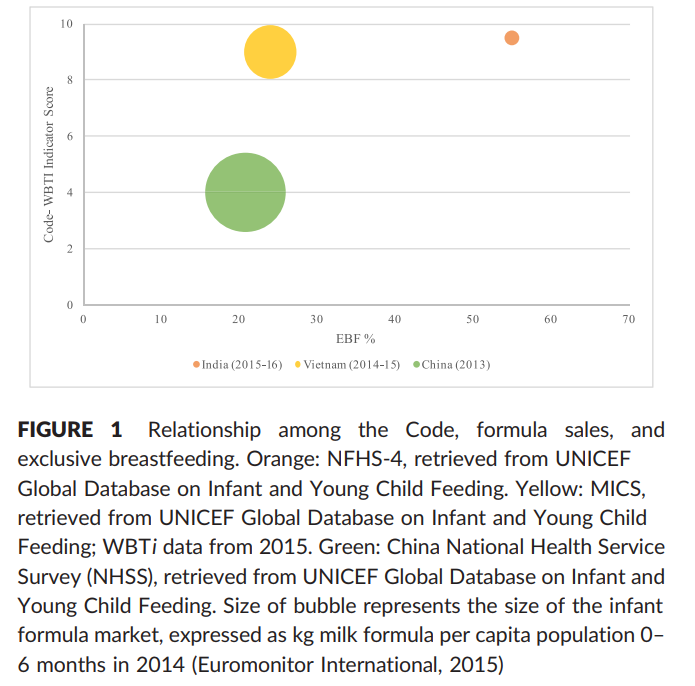Does the WHO Code work?

July 8, 2019
On a previous edition of #milkmonday, I highlighted what the WHO Code is, why it is important, and why I, as an IBCLC, fully support the implementation of the WHO Code (amongst other supportive maternity laws and practices). But the question follows:
Does the WHO Code work and can it be implemented it in such a large country?
To answer the second part of the question, it can be implemented in a large country. India – the country with the second largest population in the world sitting at approximately 1.4 billion – has implemented the WHO code. Not surprisingly, they also have an exclusive breastfeeding prevalence of ~55% (15% higher than the world average of 40%).
To answer the first part of the question is a little bit more complicated. Supporting exclusive breastfeeding through 6 months of age cannot be achieved by simply implementing the WHO Code. However, when a country implements the WHO Code, it speaks to the type of culture they are trying to create. A recent study out of the Yale School of Public Health represented a part of this issue visually:

In the above image you can see that China, a county that previously enforced the WHO Code, but chose to abandon their enforcement of the Code in 2017, has a much larger infant formula market (as seen by the size of the bubble) when compared to Vietnam and India. Similarly, they also have the lowest rates of exclusive breastfeeding.
The qualitative study, though, found that implementation and enforcement of the WHO Code alone was insufficient on its own to increase exclusive breastfeeding rates. Other factors that were found as necessary to increase exclusive breastfeeding rates included:
-
Six months paid maternity leave
-
Training on breastfeeding for health professionals
-
Breastfeeding-friendly hospitals
-
Pre- and in-service on The Code for health professionals (e.g. buy in)
-
Research and evaluation on The Code and exclusive breastfeeding
How will The Code be enforced?
Lucky for us in the community, the Yale School of Public Health also began to address this in the same publication, suggesting approaches for manufacturers, suppliers, sellers, and health professionals. These suggestions include proportional sanctions for all involved in the promotion and marketing of breastmilk substitutes, conflict of interest training, continual monitoring systems, and legislation around the topic.
Certainly, this publication does not offer all of the solutions necessary for increasing exclusive breastfeeding rates, but it is a great start.
Filed under
Published on
Type a search + hit enter!
Browse the Blog
Category #1
Category #2
Category #3
Get Your copy →
Cross the finish line with confidence.
Don't walk into your IBCLC exam nervous - with our comprehensive study guide in your back pocket, you'll be prepared for every scenario and question.
© 2024 Hope Feeds Families LLC | Policies | Site Credit